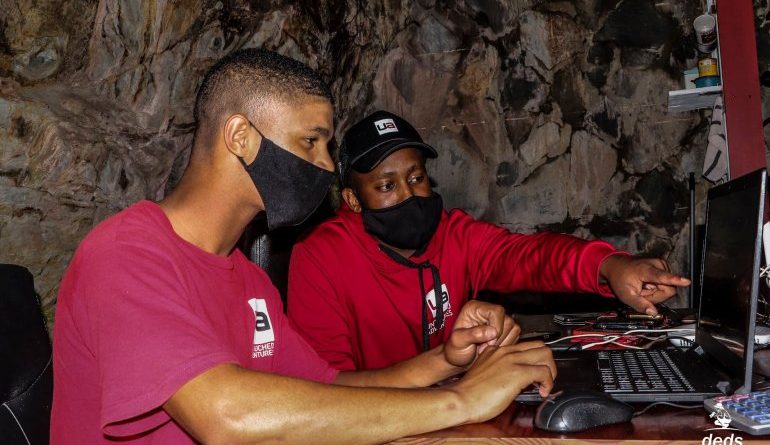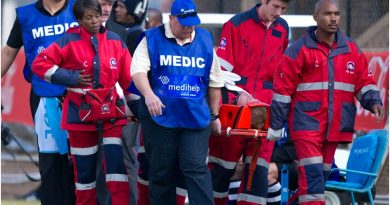As Covid infections rise and third wave hits Gauteng it’s time to be super-cautious
Gauteng Premier David Makhura says Gauteng has hit the third wave of Covid-19. The Gauteng Department of Health said a 63% increase in Covid cases was reported over a seven day period by 12 May. The country is recording more than 2 500 new cases a day.
As the number of Covid-19 infections rises in South Africa, health experts warn that one of the reasons for the resurgence in infections is declining adherence to recommended safety protocols.
After more than a year spent socially distancing, a study has found an overall drop in adherence to preventative measures. According to Ask Afrika’s COVID-19 Tracker study, while 65% of of South Africans largely adhere to Covid-19 preventative measures including regularly washing hands, using sanitisers, mask wearing and social distancing, an alarming 35% of South Africans demonstrate limited adherence.
Of particular concern is the fact that this limited adherence group is least likely to observe behaviours pertaining to social distancing and isolating after testing positive for Covid-19 which means they are potential super spreaders of the virus. Not only is this group less likely to trust the advice of official sources such as health experts, doctors, nurses and the World Health Organisation, they are also generally less trusting of vaccine related advice or opinions.
The COVID-19 Tracker study, a pro-bono study launched at the start of the lockdown in South Africa, regularly canvases the opinions of a demographically representative sample of South Africans in order to gain a better understanding of the socio-economic impact of the pandemic, lockdown and gradual re-opening of the economy on the country.
Nearly half of those surveyed said they experienced stigma against adhering to preventative measures, particularly against perceived unsociable behaviours such as social distancing and mask wearing. Of concern is the fact that the study found a stigmatisation against the use of hand sanitiser. In fact, the study recorded a 20% decrease in the use of hand sanitiser between February and March this year.
However, when soap and water is not available to wash hands, health experts are unanimous in recommending the use of hand sanitisers. Earlier this year the South African Bureau of Standards (SABS) released a new standard for hand sanitisers which includes a minimum concentration of 70% alcohol.
Annette Devenish, marketing director at Infection Protection Products, the manufacturers of the Sani-touch range of products which includes medical grade sanitisers and wipes for the healthcare, retail and hospitality industries, amongst others, and the Saniwipe trolley wipes, advises that officially certified sanitisers will bear the ‘SABS Approved’ mark on the product.
“A SABS Approved mark means the product has been audited by the SABS and tested against criteria pertaining to a specific SANS specification. To obtain and use a SABS mark on a product does not simply mean it has been tested by the SABS. In addition the product must adhere to all specifications stipulated in the mark requirement which includes the use of correct ingredients and the correct labelling requirements.”
In the past year there have been numerous complaints around questionable sanitisers which is why it’s so important to check that sanitisers are certified, safe to use and provide the required protection against the coronavirus.
Prior to the Covid-19 pandemic many manufacturers included less than 70% alcohol in their sanitising products. “Not only have we always taken compliance and quality standards very seriously, but our sanitising products included 80% alcohol even prior to the pandemic,” reveals Devenish. “Our products are manufactured in an ISO accredited facility, our sanitisers carry two SABS marks, and last year Sani-touch products passed the necessary European Standard tests proving their efficacy against the Covid-19 virus.”
As South Africa once again faces the prospect of another wave of Covid-19 infections, it will require a collective effort to maintain the necessary precautions. “If the past year has taught us anything, it is that we can each make a difference if we practice all the recommended safety guidelines, both to safeguard our own health and the health of those around us,” says Devenish.
Andrea Rademeyer, the CEO of Ask Afrika and the project lead on the COVID-19 Tracker study, says that despite society’s general fatigue with all things Covid-related, the fact that the number of infections is on the rise indicates that life is not back to normal. “As we head into winter it is critical that we all practice preventative measures,” she says.




